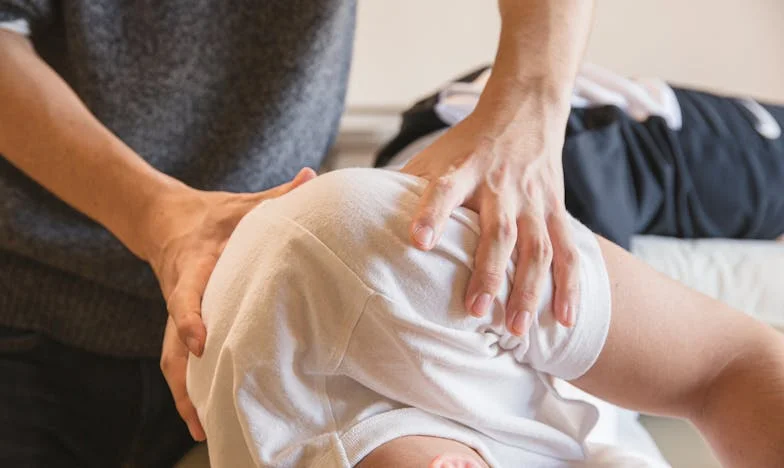You Were My World: A Story of Lost Innocence and Forgiveness
“Michael, please, don’t leave me here alone!”
Her voice, trembling and small, echoed down the sticky hallway of our fifth-floor apartment building. I paused, one hand on the peeling doorframe to my mom’s unit, my backpack heavy with overdue library books and the weight of being ten years old—old enough, apparently, to be responsible for a five-year-old neighbor whose life was as unpredictable as the Milwaukee weather.
“I’ll be right next door, Liv. Just count to twenty and I’ll come back, okay?”
Olivia nodded, her thumb quietly slipping into her mouth. Her eyes darted to the clock on the wall, and then to the empty apartment behind her. Her mom, Dr. Lauren Sanders, left post-it notes on the fridge: “Back by 9, pizza in freezer, Michael will check on you.” Sometimes, she came back in the middle of the night, smelling like antiseptic and exhaustion.
I wanted to ask my own mom why it always had to be me. My mom just shrugged, folding laundry with clipped movements. “Lauren’s a single mom, and you’re a good kid. Besides, you know how to handle yourself.”
By the time I was eleven, Olivia and I had built a fortress out of couch cushions and secrets. She told me about the monsters under her bed, and I told her about the monsters in my head—the ones that came out when my dad called from jail, promising he’d be home for Christmas, but never making it.
One Sunday evening, the air thick with the smell of burnt pizza and rain, Olivia’s mom didn’t come home. Midnight ticked by. I sat cross-legged on the carpet, watching cartoons with the volume turned low, while Olivia slept curled against my side, her small hand gripping my shirt.
At three in the morning, there was a frantic knock on the door. Dr. Sanders stumbled in, eyes red-rimmed, her hands shaking so hard she could barely dial her phone. She hugged Olivia so tight I thought she might break, then sent me home with a twenty-dollar bill and a thank-you whispered through tears.
That was the year everything began to unravel. The next summer, my mom got sick. The kind of sick that makes people bring casseroles and whisper in the hallway. I heard words like “chemo” and “stage three.” I tried to be brave for Olivia, but sometimes I just wanted someone to take care of me, too.
One afternoon, Olivia found me on the stairwell, knees pulled to my chest, tears soaking through my jeans. She sat beside me, silent for a long time, then pressed her favorite stuffed rabbit into my arms. “You can have it,” she whispered. “It keeps the monsters away.”
I smiled, but I couldn’t find the words to thank her. We were just kids, but we knew too much about loss.
High school came. We drifted. Olivia joined the debate team and started wearing her mom’s old blazers, sleeves rolled up to show skinny wrists. I threw myself into basketball, desperate for scholarships, for any ticket out of our tired building. Sometimes we passed in the hall, exchanging tight-lipped smiles, our shared childhood hovering in the space between us.
Then, senior year, Olivia’s mom collapsed in the hospital. Brain aneurysm. Gone in minutes. Olivia moved in with her aunt across town. I went to college on a half-ride, coming home only for holidays, the apartment building growing quieter every year.
It was Facebook that brought us back together. She messaged me one night: “Do you remember when you saved me from the monsters? I think they’re back.”
We met at a diner, two strangers with shared history. She looked older, tired, her eyes shadowed by grief. We talked for hours—about our moms, about guilt, about the impossibility of growing up in a world that demanded too much, too soon.
At one point, she reached across the table, her hand trembling. “Do you ever wonder if we could have changed things? If maybe… if maybe I’d just asked for help, or you had told someone how scared you were?”
I squeezed her hand. “We were kids, Liv. We did what we could.”
She started to cry then, and I realized how much I’d missed her, how much I wished I could go back and protect us both.
Now, years later, I’m a teacher in a city school, standing in front of kids who carry their own invisible burdens. Sometimes, when the hallway is quiet and the world feels heavy, I think of Olivia and the monsters we tried to fight. I wonder if I’m doing enough—to heal, to forgive, to help the next kid who’s left holding someone else’s world.
Was loving someone enough to save them? Was being their world ever really enough? Or do we all just carry each other, as best we can, until someone finally comes home?
